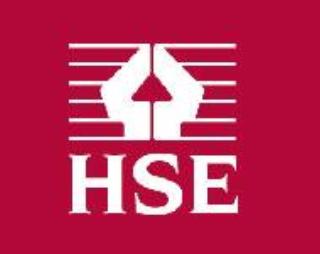A self-employed joiner has been sentenced to 300 hours of community service after a gas cooker he illegally installed exploded, severely injuring two householders and causing more than £580,000 worth of damage to four properties.
 HSE reported that the joiner, who was not a BWF member, was hired by John and Emily Reid to cut out a kitchen unit, worktop and install a new free-standing gas cooker on 31 March 2009.
HSE reported that the joiner, who was not a BWF member, was hired by John and Emily Reid to cut out a kitchen unit, worktop and install a new free-standing gas cooker on 31 March 2009.
The joiner was not competent to do the work, nor was he approved by the HSE to do so, as he was not registered with Gas Safe Register, the official registration scheme for gas engineers in Britain. It is illegal to carry out domestic gas works for gain or reward without registration.
The Court heard that the joiner told Mr Reid he was not qualified to change the gas connection, but that he could still do it. Mr Reid agreed that the joiner would carry out the work for a £60 fee.
After removing the kitchen unit and worktop, the joiner cut a copper pipe to remove an old gas hob, cleaned the end of the cut piece and attached a flexible, rubber hose. The other end of the hose was attached to the new cooker before it was pushed back against the wall.
On 17 April 2009, Mr Reid had used the hob on the new cooker to prepare dinner and was sure he had switched it off. Later that evening the couple were in the living room when they heard a noise in the kitchen, which they believed it to be the oven although neither could smell gas.
Mr Reid went to investigate and heard a noise at the back of the cooker that sounded like a constant whirring or swooshing. He opened the grill door, activating the fan inside the oven, but the noise continued so he put both hands inside and pulled the cooker out about six to nine inches.
The court heard that Mr Reid believed he may have caught the ignition switch with his thumb and there was then an explosion he described as "an almighty bang, a flash of yellow light and a roar".
Both he and his wife were injured as the gas ignited, suffering burns to their face, hands, arms and neck before fleeing the property. Mr Reid underwent a skin graft on his right hand and Mrs Reid's eyebrows and eyelashes have still not grown back.
The explosion also caused extensive damage to their home and three other properties. Three of the houses were so badly damaged they had to be demolished and rebuilt. The total cost of this and other damage to property was estimated at £580,000.
Following the incident, an investigation by the Health and Safety Executive (HSE) revealed that not only was the joiner not Gas Safe registered, he had never been in receipt of accredited certification of competence or approved codes of practice certificates of competence.
British Standards and manufacturer's instructions state that when fitting a gas cooker the connection hose should hang freely and downwards, so that it does not kink. However, the investigation found that the way it had been installed meant the hose was trapped between the cooker, the floor and side unit so it could become kinked when it was pushed against the wall.
Tests revealed that the hose had split at a middle point in the bend of the hose where it had been trapped, on both the inner steel winding and the outer rubber sheath coating. This would have allowed unburnt gas to enter the property.
It was the opinion of HSE experts that the cooker hose had been the source of the gas leak and explosion.
The joiner was sentenced to 300 hours of community service after pleading guilty to three offences – breaching Regulations 3(1), 3(3) and 5(3) of the Gas Safety (Installation and Use) Regulations 1998.
BWF Members are reminded that they should of course ensure that they have the necessary competencies and training in place if they are carrying out work outside their usual role. Any business or sole trader who carries out work on any domestic or commercial gas appliances without being on the Gas Safe Register is breaking the law and potentially putting lives at risk.
In the case of domestic gas works, the Gas Safe Register demonstrates that an engineer has demonstrated their competence to recognised training and accreditation bodies. Every registered engineer has an ID card which can be used to check they are who they say they are and shows the kinds of gas work they are qualified to carry out. The details can then be checked by calling 0800 408 5500 or visiting www.gassaferegister.co.uk